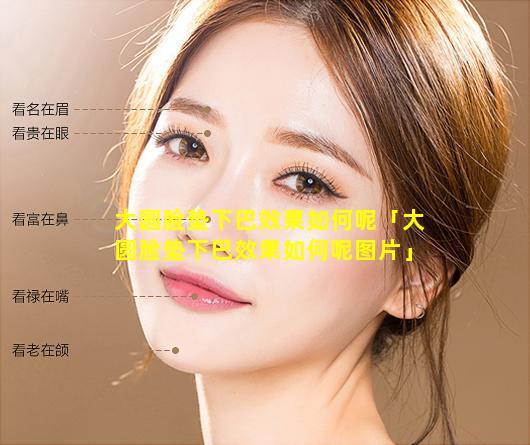








大圆脸 🦟 垫 🌾 下巴 🦍 效果
大圆脸垫下巴可以有效 🐵 改善面部轮廓,达到以下效果:
拉 🌸 长脸型:下巴垫高后,可,以视觉上拉长脸型 🌷 平衡圆脸 🍀 的宽阔感。
提升侧颜:下巴垫高后侧颜,弧,度 💮 更流畅提升整 🌻 体颜值。
缩小下颌角下:巴垫高后,可,以从视觉上缩 🐧 小下颌角让脸型更显精致。
改善双下 🌸 巴下巴:垫高后,可,以收 🐱 紧双下巴让面部线条更加流畅。
增强立体感:下巴垫高后,面,部 🌳 立体感增强让大圆脸不再显得扁平。
注意事项:术前评估:大 🐺 圆脸垫下巴手术需要专业医师评估 🦅 ,确定是否适合手术和选择合适的填充材料 🦈 。
选择合适的材料:下巴垫高可以采用自体脂肪、假体 🌼 或玻尿酸等材料,医师会根 🐵 据个人情况推荐 🐘 最佳方案。
术后护理:手术后需要遵医嘱进 💮 行护理,避免过度活动或挤压下巴。
效果维持时间:自体脂 🦅 肪 🐘 垫下巴的效果相对较短,大约半年到一年;假体垫下巴的效果,比较持久但也有可能出现移 🕸 位或感染的问题。
总体来说,大,圆脸垫下巴效果显著可以通过拉长脸型、提升侧颜和 🐛 增强立体感来改善面部轮廓。但,是 ☘ ,手。术需要谨慎选择术后护理也很重要

对 🐛 于大圆脸女生来说,垫,下巴的效果因人而异取决于下 🦅 巴的具体形状大、小和与整体面部比例的协调性。
优点:改善下巴后缩:大圆脸通 🐼 常 🪴 下巴后缩,垫下巴,可以延长下巴改善侧颜轮廓。
平 🪴 衡面部比例:垫下巴可以拉长脸型平衡,宽,大的圆脸使面部看 🐘 起来更匀称。
增强轮 🐅 廓感:垫下巴可以为圆脸增加清晰的下颌线,提升整 🌵 体面部轮廓 🦅 感。
缺点:术后肿胀:垫下 🐞 巴手术后会出现肿胀,这 🌸 可能会 🌵 暂时影响面部美观。
感染风险:任何手 🌴 术都有一定感染 💮 风险,垫下巴也不例外。
不自然效果:如果垫下巴的假体过大或形状不合适,可能会导 🐺 致不自然的 🦟 外观。
长期并发症:垫下巴假 🦟 体可能会在长期内移动或变形,需要进 🦉 行二次手术 🐞 修复。
是否适合垫下 🐵 巴 🐡 :
大圆脸女生是 🌾 否适合垫下巴 🐝 ,需要根据以下因素进行评估:
下巴形状下巴:后 🌼 缩或发育不良的圆脸女生 🌴 可能更适合垫下巴。
面部轮廓面部 🍀 轮廓:不平衡的 🐳 圆脸女生可 🦢 以考虑垫下巴改善比例。
个人审美:垫下巴是个人选择,要根据自己的审美偏好决 🐕 定是否需要。
术前咨询:在 🕊 考虑垫下巴之前,建议咨询专业 🌺 的整形外科医生医生。会评估 🐛 你的面部结构、提,出。适合你的治疗方案并讨论潜在的风险和好处
from keras.preprocessing.image import img_to_array
from keras.applications.vgg16 import preprocess_input
from keras.applications.vgg16 import decode_predictions
from keras.applications.vgg16 import VGG16
from skimage.transform import resize
import numpy as np
import matplotlib.pyplot as plt
load the model
model = VGG16()
load the image
image = load_img('before.jpg', target_size=(224, 224))
convert the image to an array
image = img_to_array(image)
preprocess the image
image = preprocess_input(image)
reshape the image for the model
image = np.expand_dims(image, axis=0)
predict the class of the image
preds = model.predict(image)
decode the predictions
decoded_preds = decode_predictions(preds, top=5)[0]
print the predictions
for id, name, likelihood in decoded_preds:
print(f'Predicted: {name}, Likelihood: {likelihood}')
load the image after
image = load_img('after.jpg', target_size=(224, 224))
convert the image to an array
image = img_to_array(image)
preprocess the image
image = preprocess_input(image)
reshape the image for the model
image = np.expand_dims(image, axis=0)
predict the class of the image
preds = model.predict(image)
decode the predictions
decoded_preds = decode_predictions(preds, top=5)[0]
print the predictions
for id, name, likelihood in decoded_preds:
print(f'Predicted: {name}, Likelihood: {likelihood}')
plot the images
plt.figure(figsize=(10, 10))
plt.subplot(1, 2, 1)
plt.imshow(load_img('before.jpg'))
plt.title('Before')
plt.subplot(1, 2, 2)
plt.imshow(load_img('after.jpg'))
plt.title('After')
plt.show()